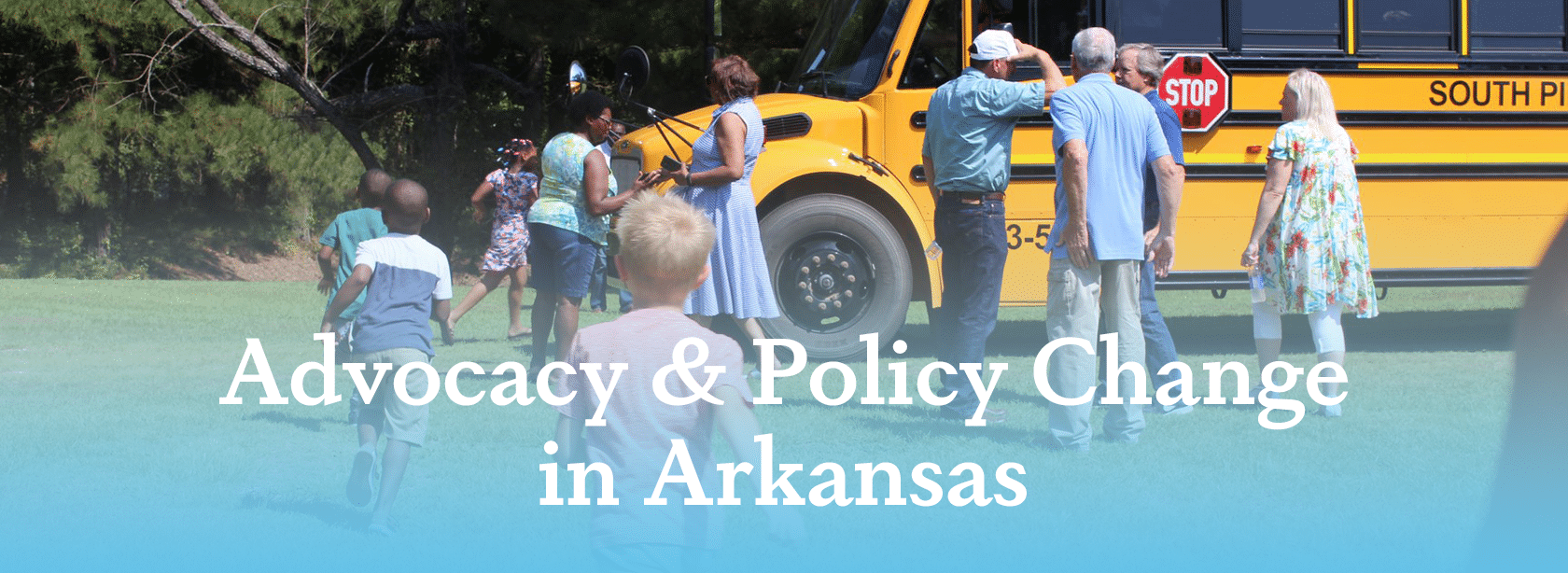
All of us have a role to play to make Community Schools the future of education in Arkansas. Here is what you can do to advocate for policy change to coordinate relationships and resources to ensure our public schools accelerate equitable outcomes for all students.
Effective Advocacy
When we advocate, we take action to change policies and systems. According to The Citizens’ Committee for Children of New York, effective advocacy requires us to:
- Know the facts
- Use facts
- Use clear, concise messaging
- Nurture relationships and collaborate
- Engage the public and get residents on your side
- Be heard
- Express gratitude
Be an Advocate
The Coalition for Community Schools is an ecosystem of national, state, and local cross-sector leaders that promote community schools as an equity-driven, researched-based strategy. The Coalition’s Engaging All Leaders resource provides a helpful blueprint for how students, educators, elected officials, employers, and funders can take action to advocate for Community Schools.
Families and Residents
Leaders
- Parents and guardians
- Parent-teacher groups
- Community and neighborhood organizations
Roles
- Serve on school planning teams
- Create a learning environment at home and in the community
- Know expectations for parents and students
- Learn from data while tracking students’ educational progress
Actions
- Volunteer
- Join safety patrols
- Be a mentor or tutor
- Set high expectations
- Talk about the value of education with kids and other families
- Share expertise as a partner in kids’ learning
Benefits
- Greater student success
- Increased community well-being
- More adults in students’ lives
- Safer schools and communities
Elected Officials
Leaders
- Mayors
- Governors
- State legislators
- City council members
- School board members
- County board members and executives
Roles
- Support communities’ vision for local learning
- Share educational outcomes with children and families
- Pursue win-win goals for kids, families, and local and state leadership
- Include education at every level of community planning
Actions
- Finance high-quality, effective programs and services
- Maximize efficiency in use of public and private resources for education, human services, and employment
- Establish policies and incentives for collaboration
- Engage all community members in discussions about education and future planning
- Track and share educational outcomes, making sure to celebrate progress
Benefits
- Greater student success
- Increased community well-being
- More adults in students’ lives
- Safer schools and communities
Employers and Funders
Leaders
- Telecommunications companies
- Restaurants
- Retail storres
- Corporations
- Philanthropic organizations
- Service clubs
Roles
- Learn about area school systems
- Engage in change not charity (e.g., instead of providing backpacks, address poverty that prevents families from being able to afford backpacks)
- Discuss common interests with education leaders, such as preparing the future workforce
- Build partnerships to achieve win-win outcomes
Actions
- Provide financial support
- Make time in employees’ schedules to volunteer as mentors and tutors
- Create onsite learning and apprenticeship opportunities for students
- Donate technology and other materials to learning institutions
Benefits
- Tax savings
- Improved employee morale
- New opportunities for business partnerships
- Improved reputation within the community
- Increased customer loyalty
- Connect students to career opportunities and role models
- High-skilled workforce
Community Leaders
Leaders
- Health and human services
- Arts and culture institutions
- Libraries
- Law enforcement<
- Youth development groups
- Community development agencies
- Faith-based groups
Roles
- Share resources and expertise
- Participate in community and educational planning processes
- Engage and partner with educational leaders
Actions
- Provide and invest in adult education
- Create student enrichment opportunities
- Host recreational events
- Engage families in creative ways
- Establish high-quality out-of-school learning programs
- Support families
- Continuously learn about the community
- Provide free or low-cost health services
- Invest in research-based early education programs
- Lead violence prevention initiatives
Benefits
- Stronger, healthier families
- Collaborative, more efficient use of facilities
- Learning from residents
- Improved student outcomes and daily school attendance
- Safer community and reduction in high-risk behaviors
Educators
Leaders
- Teachers and professors
- Library media specialists
- Superintendents
- Principals
- Technology directors
- Nurses
- Curriculum specialists
- Counselors
- Colleges and universities
Roles
- Engage in data-driven decision-making
- Provide individualized, equitable learning experiences for students
- Provide educators exceptional professional development
- Establish mentorship programs for educators and students
- Make technology and other school resources available after school
- Connect students’ educational experiences to the community and its needs
- Open access to facilities and services to seniors, adult learners, and other community groups
- Host arts and cultural programming
- Provide counseling and health services to students and the broader community
Actions
- Provide financial support
- Make time in employees’ schedules to volunteer as mentors and tutors
- Create onsite learning and apprenticeship opportunities for students
- Donate technology and other materials to learning institutions
Benefits
- Improved student engagement, daily attendance, and overall achievement
- Increased use of facilities financed by taxpayers
- Community support for local education
- Identify and address local issues
- Foster civic engagement
- Diversity in community participation
Students
Leaders
Every Arkansas student has the opportunity to lead their learning experience and should have the opportunity to shape the future of their community.
Roles
- Share voice in the process of making decisions about their school and community
- Represent themselves and peers in school and community discussions
- Serve as a community resource
Actions
- Participate in community service projects and learning that extends beyond classroom walls
- Assume leadership positions on school reform councils
- Explore and record local history and culture
- Help identify and address issues affecting the places they call home
- Collaborate with peers to do their part to lead the community
Benefits
- Lifelong civic engagement and community building
- Improved academic achievement
- Stronger relationships with other residents
